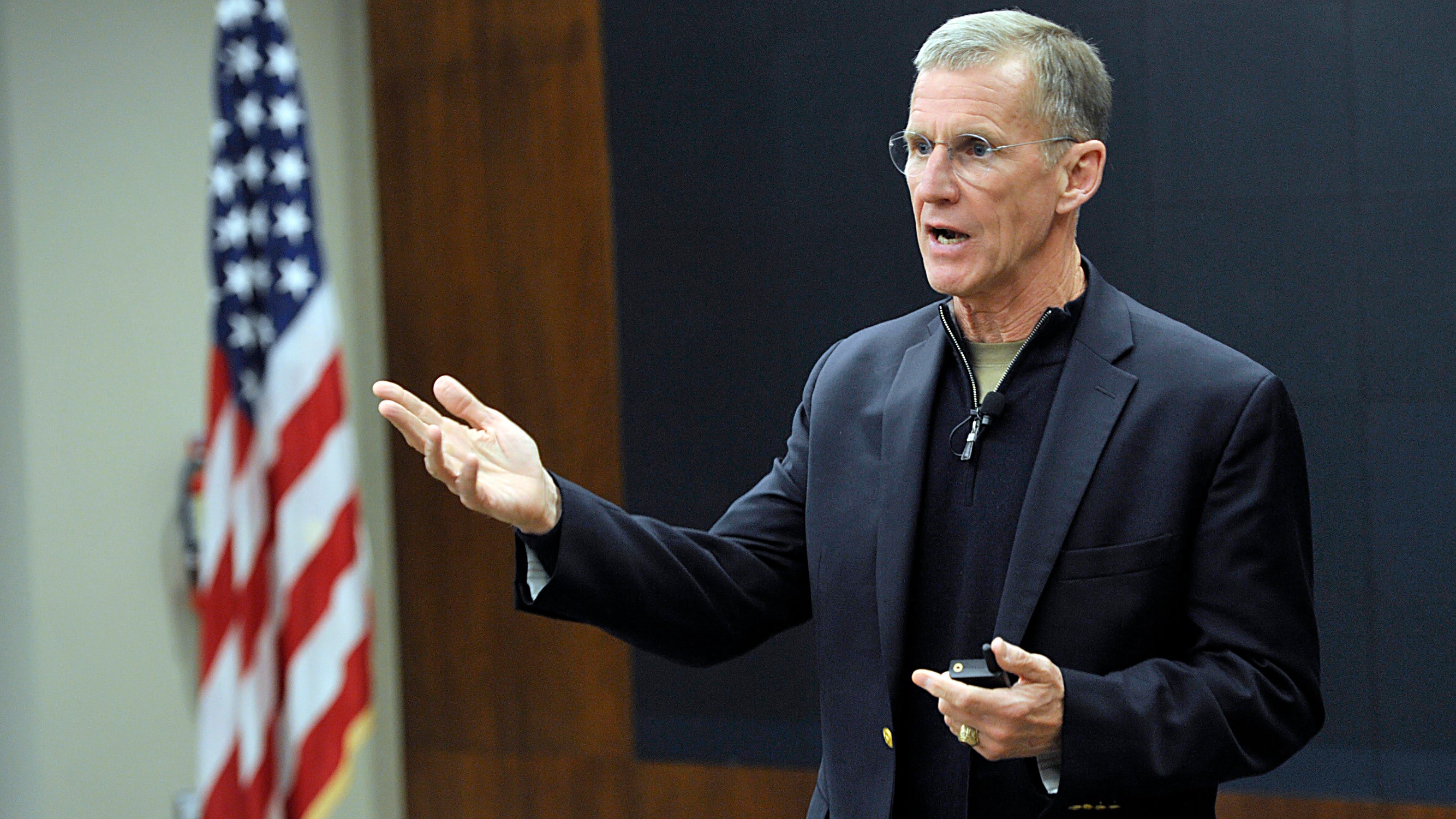McChrystal: Buck Tradition to Bring in Talent
McChrystal: Buck Tradition to Bring in Talent

In today’s tough recruiting environment, the Army should be “taking people in lateral entry at every rank” in its bid to attract the right talent, said retired Gen. Stanley McChrystal, who acknowledged his view is at odds with military tradition.
“We have a guild system in the military,” McChrystal said, pointing to the progression of promotions that systematically moves people through the ranks starting at the bottom, with few exceptions. “What we should be doing is taking people in laterally and that’s very frightening to people that are in the guild.” With lateral entry, people with a skill set the Army needs right away could come in at a rank that corresponds to their skills without going through the rank progression.
In remarks at a Lemnitzer Lecture Series event hosted Jan. 16 by the Association of the U.S. Army’s Institute of Land Warfare, McChrystal said the Army could bring in experts to augment its talent base in areas such as cyber, but those experts “are always going to be viewed as sort of not real,” and not be as fully integrated as a uniformed person would be.
McChrystal, a 1976 West Point graduate who spent most of his career in Army special operations and retired after 34 years of service, is the author of three books. He is known for his expertise on leadership, the topic of his most recent book, Leaders, Myth and Reality, which he co-wrote with Jeff Eggers and Jay Mangone.
He praised the Army’s approach to leader development, saying, “We get above-average performance out of average people” and spend 10 times as much time on developing leaders than the private sector does.
Driven by pay and incentives, civilians are happy until they “find out the person next to you is making more money,” he said. In the military, service members are incentivized by intrinsic things that matter more to the individual. “Money confuses the issue, and in the military, that’s off the table, which is a big advantage,” McChrystal said.
In his civilian life, he said, he has met people who could be taught some military things they need to know, then “you could put them in uniform tomorrow and they could be, hands down, effective right away and that would add value to the organization because fresh air would come in.”

